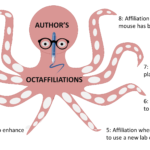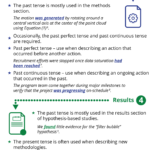Multiple relocations for fixed-term contracts are the norm in academia. This means that researchers often publish data collected from one institution while working at another. Some journal submission systems only permit one affiliation per author to be added, making authors unsure of which … [Read more...]
“We are studying a narrow field and we disagree with previous research results. How can we report this?”
This question was asked in the Q&A session of an online talk presented by International Science Editing. In this blog, we discuss how to respectfully dispute the findings of others. Acknowledge the good Begin by acknowledging what you liked. Rarely is a paper so poorly written that … [Read more...]
“Many of our references are published in Chinese. Will this be a problem?”
This question was asked in the Q&A session of a recent talk on the topic of scientific publishing presented by International Science Editing in China. In this blog, we look more deeply at this question and discuss why there is no simple answer. Non-English sources may be a problem for … [Read more...]
Verb tenses in scientific manuscripts
A key aspect of producing a well-written scientific manuscript worthy of publication is the use of appropriate verb tenses in the different sections of the manuscript. In this infographic, we discuss when, where, and how to use the different verb tenses. The infographic contains the following … [Read more...]
Tips for writing sentences about computer science
Make your writing clear Say what you mean For example, the sentence Parental involvement caused lower levels of peer problems. suggests direct causation. However, if this was an observational study, the two outcomes were probably observed to occur together, but direct causation was … [Read more...]




